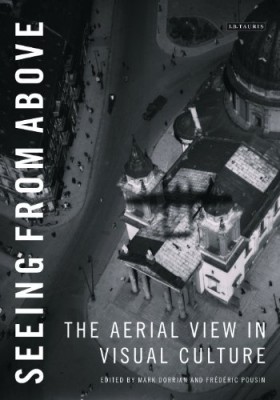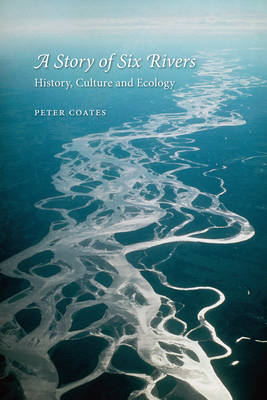Deadline for proposals: Friday, 10th January 2014.
From
their earliest inception, film and television have been concerned with
the registration of place through the unique capacity of the audiovisual
moving image to convey the experience of locale over time. In recent
years, screen studies has engaged with the politics of location
especially through the site of the cinematic city and inter-related
questions of modernity, architecture and urban cultural transformation.
The main theme of this year’s Screen conference will offer an
opportunity to extend critical debate into the fields of landscape and
the environment. In so doing, it will offer an exciting range of
inter-disciplinary perspectives in order to reflect on the real and
imaginary ways that we interact with the world through the portal of the
screen.
Martin
Lefebvre has argued that landscape manifests itself as an
interpretative gaze. It is anchored in human life not just as something
to look at but to live in socially as a cultural form. Cultural
geography now argues that landscape must not only be understood as the
outcome of interactions of nature and culture, but that practices of
landscaping such as walking, looking, driving and, of course, filmmaking
might also be the origin of our ideas about what ‘nature’ and ‘culture’
actually are. If human investment toward space produces the notion of
landscape, what then are the principal ways in which the moving image
articulates this process? How have film and television articulated the
necessary tension between embodied immersion within a specific
topographical space and critical reflection on the specific historical
and cultural contexts that shape global screen culture past and
present?
The
Screen Studies Conference, one of the longest running and most
successful events of its kind in the world, welcomes proposals for
papers/panels on any of these questions and on the following topics
related to the main conference theme (as usual, proposals for other
subjects beyond this focus will also be considered):
· The representation of geographically and historically specific screen landscapes
· Environmental politics and screen cultures
· Genre, narrative and the landscape
· Phenomenology and screen landscapes
· Landscape and television culture
· Journeys and landscapes: walking and travelling on screen
· The landscapes of world cinema
· Landscape and environment: autobiography, history, memory
· Screen cultures within the environment
· The dialectics of place and non-place in film and video
· Site-specific screening practices
To submit a proposal, please visit http://www.gla.ac.uk/services/screen/conference2014/
 New Book: The View from the Train: Cities and Other Landscapes
New Book: The View from the Train: Cities and Other Landscapes


 I was invited to present at an event organised by Liz Stewart from the Museum of Liverpool on behalf of the Historic Society of Lancashire and Cheshire. The event, ‘Getting There: Exploring the History of North West’s Transport Links’, was held at the Museum on 18th September 2013. My talk was called ‘Making Connections: Amateur Transport Films and Merseyside’s Historical Geography’. Other speakers included Sharon Brown from the Museum of Liverpool, Richard Knowles, Professor of Transport Geography at the University of Salford, and Martin Dodge, Senior Lecturer in Human Geography at the University of Manchester.
I was invited to present at an event organised by Liz Stewart from the Museum of Liverpool on behalf of the Historic Society of Lancashire and Cheshire. The event, ‘Getting There: Exploring the History of North West’s Transport Links’, was held at the Museum on 18th September 2013. My talk was called ‘Making Connections: Amateur Transport Films and Merseyside’s Historical Geography’. Other speakers included Sharon Brown from the Museum of Liverpool, Richard Knowles, Professor of Transport Geography at the University of Salford, and Martin Dodge, Senior Lecturer in Human Geography at the University of Manchester. Liverpool Echo article on the publication of World Film Locations: Liverpool (Intellect 2013) featuring an interesting photo gallery of location filming images provided by the Liverpool Film Office:
Liverpool Echo article on the publication of World Film Locations: Liverpool (Intellect 2013) featuring an interesting photo gallery of location filming images provided by the Liverpool Film Office:
 The Liverpool edition of Intellect’s World Film Locations series has now been published, edited by Jez Conolly and Caroline Whelan. I have a short article in the book called ‘The Last of Liverpool: Liminal Journeys Around the Port City’, which takes as its main point of departure Derek Jarman’s 1987 film ‘The Last of England’, parts of which were shot in the city:
The Liverpool edition of Intellect’s World Film Locations series has now been published, edited by Jez Conolly and Caroline Whelan. I have a short article in the book called ‘The Last of Liverpool: Liminal Journeys Around the Port City’, which takes as its main point of departure Derek Jarman’s 1987 film ‘The Last of England’, parts of which were shot in the city: 

 Invited to give a talk at the ‘Placing Morecambe’ symposium organised by David Cooper and Jo Carruthers and held at the Dept. of English and Creative Writing at Lancaster University on 13 June 2013. This event followed on from the ‘Practising Morecambe’ field excursion and group exercise on 30 May (which for me also involved a night in the legendary Midland Hotel, replete with endless piped 1930s dance music – eerily reminiscent of the barroom music from The Shining). In my presentation I discussed some ideas relating to spatial anthropology and the relationship between the critical and the creative. I also provided some reflections on the creative process and outputs developed from the Morecambe field exercise, including a slide show of images gleaned from my walks around the town, and a poem, ‘Frontierland’, inspired by the practice of ‘placing Morecambe’.
Invited to give a talk at the ‘Placing Morecambe’ symposium organised by David Cooper and Jo Carruthers and held at the Dept. of English and Creative Writing at Lancaster University on 13 June 2013. This event followed on from the ‘Practising Morecambe’ field excursion and group exercise on 30 May (which for me also involved a night in the legendary Midland Hotel, replete with endless piped 1930s dance music – eerily reminiscent of the barroom music from The Shining). In my presentation I discussed some ideas relating to spatial anthropology and the relationship between the critical and the creative. I also provided some reflections on the creative process and outputs developed from the Morecambe field exercise, including a slide show of images gleaned from my walks around the town, and a poem, ‘Frontierland’, inspired by the practice of ‘placing Morecambe’. 

